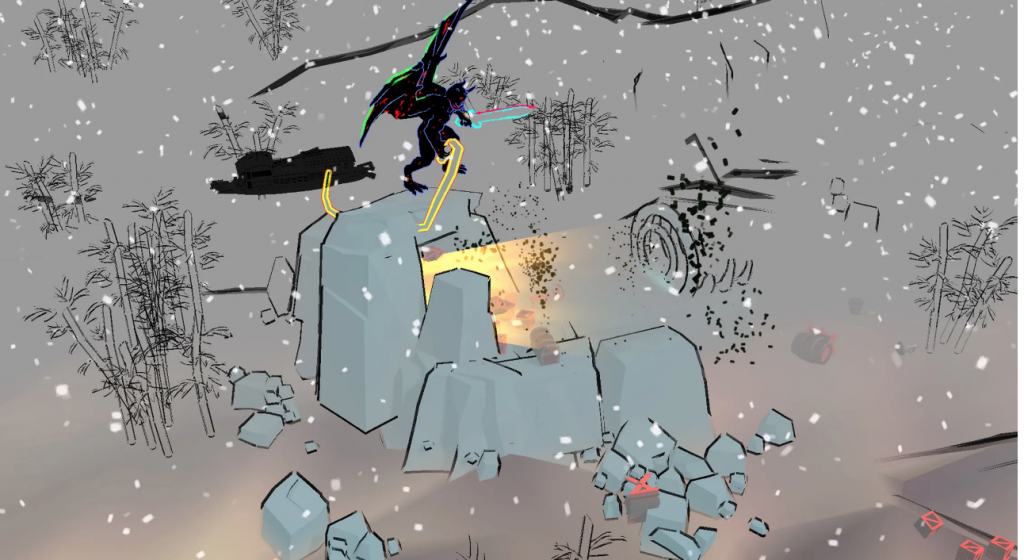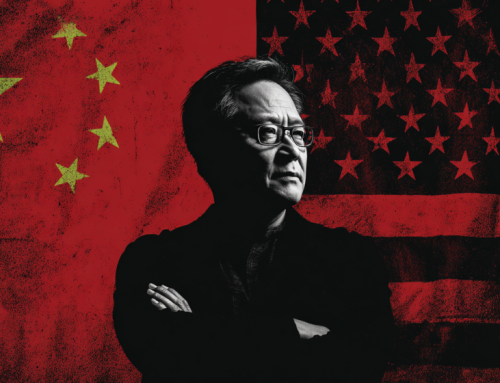
Miao Ying, Surplus Intelligence, film, 5k resolution, 33’27”, 2021-2022.
Miao Ying Animates Algorithm’s Movie Script on AI/Cockroach Romance
After watching several old TV shows become movie plots and vice versa, one wonders whether we have peaked at creative writing. It seems like writers have recycled things for so long that they’ve become predictable. Or, they’ve become too familiar, so you walk out of the movie or just put the book aside.
That is until artist Miao Ying’s animated film Surplus Intelligence.
Ying, 37, who was born in Shanghai and is currently based in New York and Shanghai, is part of a generation of Chinese artists who know how to integrate video game style and internet culture into a film.
After reading about this new 30-minute film feature on wired.com, it’s clear that Ying has found a very different storyline with which to entertain us.
Without giving away the full story, we will tell you a little about the main characters. In Surplus Intelligence, a cockroach falls in love with the AI that monitors her behavior. The problem is that the AI is a man with movie-star looks, who committed a crime in Walden XII, the quasi-medieval fantasyland where the story is set. He stole the village’s power stone, and so the roach sets off to mine bitcoin to save him.
Yes, you read that correctly. AI meets cockroach. Cockroach must save AI with Bitcoin. The story is practically ripped from the latest big tech headlines. Well not quite. But it is a fascinating approach to filmmaking and finding content that feels fresh. The film is on view through the end of the year at the Asia Society in New York as part of the exhibition Mirror Image: A Transformation of Chinese Identity.
Did we mention that the script was written by GPT-3? In the interview with Ying, we find lots of details about how it was done.
Ying explains it this way:
“It’s almost like a science fiction story set in the past, but it’s about the technology of the future. I didn’t alter what the AI wrote. GPT-3 generated a short story at first. We broke it down into parts and fed it back to GPT-3 to develop more from it, which later became the chapters in the film, and we selected what made the most sense from each variation. Once we had the script, I made the visuals. You can’t write a really long, comprehensive text with GPT-3, but I feel like right now we’re in a sweet spot. What it writes is interesting enough that it’s not too stupid, but it’s still a little bit off. But I think GPT-3 is developing really fast. When I started working with GPT-3’s predecessor GPT-2 in 2019, it couldn’t write a coherent story. Just a year or two later, it’s much more advanced. A lot of product reviews I believe are written by AI. It’s really good bullshitting.”
He certainly comes right to the point throughout this interview and that too is refreshing.
Ying trained GPT-3 using translated Chinese online softcore S&M novels, prayer books, American and Chinese ideological texts and Walden Two, a utopian novel from 1948 by behavioral psychologist B.F. Skinner.
“I also fed it American and Chinese ideologies. So it’s creating a kind of fantasyland. Sometimes you think it’s talking about America and sometimes you think it’s talking about China. I’m really into Skinner’s idea of behavioral theory. His novel Walden Two implies that if you just reinforce positive behavior, then you might not need to punish people. You will have an organic system in which people only do positive things. This film is almost like a simulation as if Walden Two ran for many, many versions. That’s why the village is called Walden XII.”
Ying has produced several edgy movies, including Hardcore Digital Detox (2018), which challenges viewers to experience the internet behind the Great Firewall—and without the filter bubbles that platforms in the East and West impose. Chinternet Plus (2016) describes how to brand a “counterfeit ideology.” And for 2007’s Blind Spot, Miao manually annotated a Chinese dictionary to indicate all of the words that were censored on Google.cn at the time.
This is a modern AI artist who commands the digital pallette he works from and produces plot lines like none you have ever read or seen on screen.
read more at wired.com







Leave A Comment